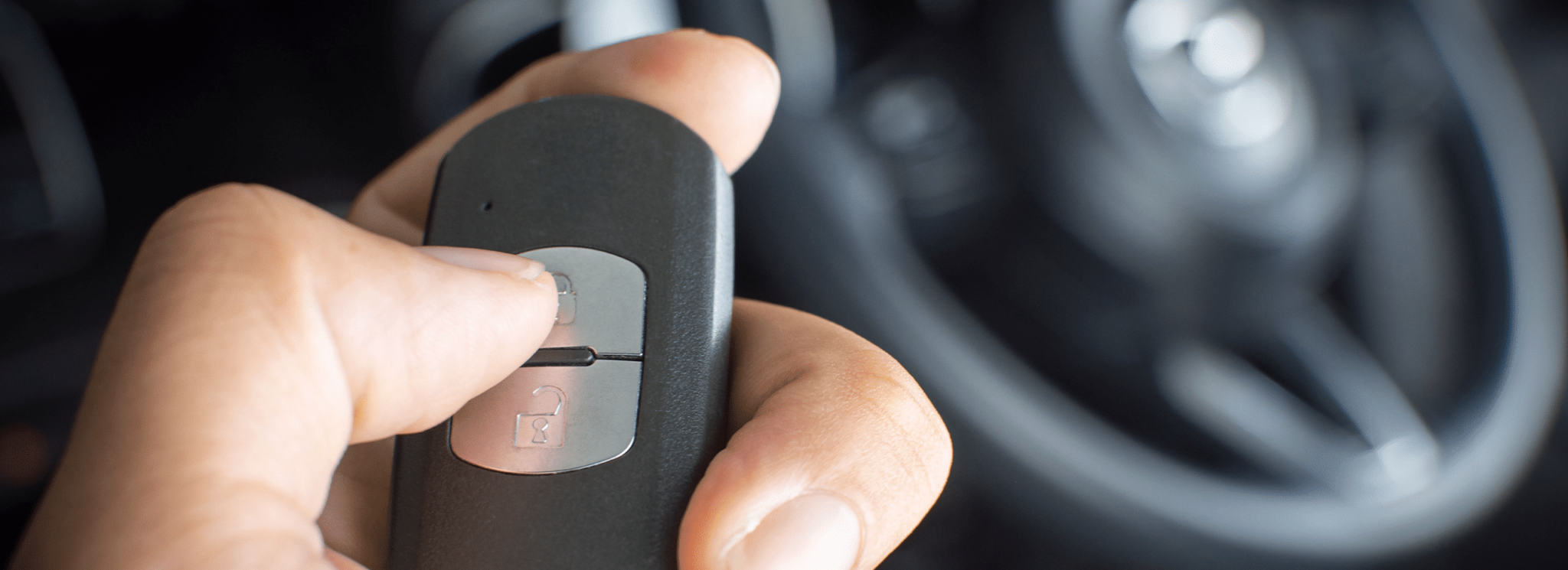The number of vehicles stolen continues to climb and it continues to burden dealerships and cause multiple nightmares for them. According to the National Insurance Crime Bureau, auto thefts in 2020 increased by almost 10 percent compared with 2019.
“Preliminary reports indicate a sharp increase in automobile thefts for 2020,” says NICB President and CEO David Glawe. “All indications are 2020 will be the largest theft year in the past decade by a significant margin.”
The NICB press release states that car theft reached the double digits every month from June to December 2020. These thefts could be pinned on the pandemic, economic downturn, decrease in youth outreach programs, and resource limits.
This doesn’t surprise anyone because the pandemic caused cutbacks in key programs and resulted in many workers losing their jobs, increasing financial pressures on households across the country. Unfortunately in these circumstances, families often do what they need to do to put food on the table and keep a roof over their heads.
This news is even more concerning for auto dealerships at a time when they struggle to maintain decent inventory levels to meet customer needs. The pandemic caused many manufacturers and others in the supply chain to make changes that created shortages. One of those is a shortage of semiconductor chips that has greatly affected the automotive industry’s supply chain.
Additionally, many auto parts have seen a huge increase in value because of these supply chain interruptions, as well as outside economic factors. One of the most targeted commodities are catalytic converters. Thefts of these have exploded to astronomical levels in the past year as the metals in the converters are worth a lot more money. Put all of these together and you have a perfect storm of supply chain problems, parts shortages, shrunken inventory levels, and mushrooming vehicle theft.
One of the other main causes of vehicle theft is the growing number of keyless car thefts. It used to be complicated. Now, thieves can pull it off in just 20 to 30 seconds. More recent data from the National Police Chiefs’ Council points to a 3.1 percent increase in vehicle theft between May and June 2021 due to keyless theft.
How Keyless Car Theft Happens
“Smash and grab” has been replaced with “bounce and roll.” Instead of breaking in and hotwiring cars, thieves bounce the signals off the keys and roll away with the vehicle. It’s also known as a relay attack as it’s faster and quieter than “smash and grab.” Plus, it doesn’t require a physical key to enter the vehicle.
As you know, keyless entry works by having a fob that transmits short-range radio waves. The fob sends the signal to a receiver in the vehicle that picks it up. When the vehicle recognizes the signal, it unlocks the doors. This same process allows the person to start the car.
To take advantage of this process, two criminals work together to trick the vehicle into thinking the key is near by using two relay boxes. They use an electronic signal relay to intercept the key’s fob signal by putting one relay box by the vehicle and the other is near where dealerships store their keys.
The relay technology makes it possible for tech-savvy criminals to receive the signal from the key inside the dealership and transfer it to a device that lets them unlock and drive the car. This approach works well for them because there’s no damage to the vehicle.
The good news is that auto dealerships can take steps to prevent keyless car theft.
How Dealerships Can Stop Keyless Car Theft
Here are six ways you can prevent keyless car theft at your dealership.
1. Use a Faraday Cage
Faraday cages are an enclosure that can block electronic signals like those sent from fobs. Your dealership could invest in a Faraday cage for storing its keyless fobs. Put the Faraday cage and keys as far back in the office as possible. You want to ensure the radio signals from fobs can’t reach the vehicles.
It may be worth investing in Faraday bags or something smaller. Whenever an employee carries a fob, they should put it in the bag until they reach the vehicle. This prevents anyone from trying to send the signal to someone with bad intentions.
2. Develop Key Management Policies
For these security tips to work, your dealership must have security processes and educate employees on those processes. Key management policies are a big part of that. An employee may give the fob to another employee or a suspect who pretends to be an interested buyer.
Create processes for managing keys, document the steps, and train employees on these processes. No employee should receive a fob until they’ve completed the training and signed off on it. When they sign off on the training, they’re saying they understand the policy and will be held responsible if they don’t follow it.
Implement a “key sign out” process in which you maintain a record of all keys checked out, who checked them out, when they were checked out, and when they’ve been returned. If possible, put a time limit on how long an employee can have the key checked out. Another useful rule is to limit each employee to check out only one key at a time. If a customer wants to test another vehicle, then the employee will need to return the fob before checking out the next one.
All keys should be in storage or in an employee’s hand. They should not be stored anywhere else, not even a jacket or pants pocket. It’s too easy for employees to lose them or someone to bump into the employee and secretly take the key. After returning from a test drive, advise employees to escort customers to a waiting area and offer refreshments.
During this time, the employee will go back to the test-driven vehicle and drive it to its parking spot or drop-off area for valets. This is a safe way for the employee to confirm the key fob is the correct one and that it still works.
3. Avoid Handing Key Fobs to Customers
As the key management policy will state, no customer may have access to the fob. This is one sales tactic that needs to go away. Yes, allowing customers to touch the key fob and check out its buttons can compel them to make the buy.
However, it puts the fob at risk for copying or swapping. In your documented security processes, make it a requirement to never hand key fobs to anyone. No sales trick is worth the loss of a vehicle or damaging it. Since the key is not needed to start the car, salespeople should keep positive control of the key while the customer starts the vehicle.
4. Create a Dealership-branded Key Chain
This creative solution works both as a marketing tool and as an anti-theft device. Order key chains with the dealership brand. These should not be given out to anyone as a keepsake. Some crooks buy blank branded key fobs in different colors to swap them out. Employees will think they have the real fob when they don’t.
Thieves won’t be able to get away with it because employees know what the branded keychain looks like. Between the color of the keychain and the notable branding, it will make it almost impossible for anyone to get away with a fake keychain.
Your dealership can still give away keychains as swag. Except these need to be different from the anti-theft branded keychain.
5. Educate Customers
When a customer drives off your lot with a new vehicle, that’s not the end of the relationship. They may buy vehicles for other family members or themselves. Go the extra mile and educate customers to never leave their fob in the vehicle. Explain there’s a growing number of keyless fob theft. One of the biggest causes is people leaving their fobs in the vehicle.
Recommend they keep their keys stored in a Faraday wallet or in a metal object like a tin. Or in the back of their house away from windows and doors where it will be too far to try to reach the signal. Some vehicles allow customers to turn off the key’s wireless signal temporarily. Show your customer how to do this.
Suggest that it may be worth adding a tracking device to the vehicle, if it doesn’t have one built in.
6. Implement Remote Video Surveillance
Remote video surveillance offers many benefits that you won’t find with other security systems. At the same time, you’ll help to maximize your investment and see a quick return compared to other security solutions.
Video surveillance helps deter crime before it happens because it’s a proactive solution. A trained security expert designs and places security cameras in strategic places around the dealership lot. You’ll also want video surveillance that comes with advanced analytics. The analytics watch for a match to its many programmed scenarios. After finding a match, it notifies the trained monitoring operator who takes the needed action.
The operator is located in a building away from your dealership. The person may be able to alert intruders on an audio speaker or contact law enforcement while keeping tabs on the suspect’s movements.
Unfortunately, employee theft is a problem. Video surveillance helps lower the chances of this happening. They can’t hide from the cameras, and they have no relationship with the monitoring operator. They can’t get help from the operator to commit an inside job.
Remote video surveillance can help protect your dealership from false claims. When customers bring their vehicles in for servicing or maintenance, they may claim the dealership damaged the vehicle. Video surveillance captures everything and tells the real story.
If a customer makes the claim, analysts can search the footage to piece together what really happened as this video shows proof from a liability claim against a dealership. Liability claims are hard to win without evidence. Thanks to the video, you’ll have the evidence you need.
Your dealership will save on costs because video surveillance costs up to 60 percent less than security guards. This cost includes everything: hardware, technology, and monthly monitoring. Customers often see an ROI within four months.
The automotive industry has unique security requirements. You want to work with a company that can design an effective security system for your dealership. When you do, you’ll optimize your investment.
To learn more about dealership security, pick up this complete guide to securing your dealership. Please feel free to contact us with your questions.

